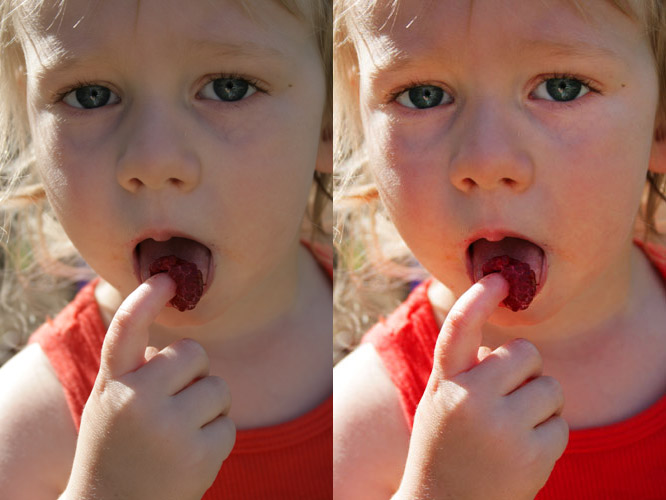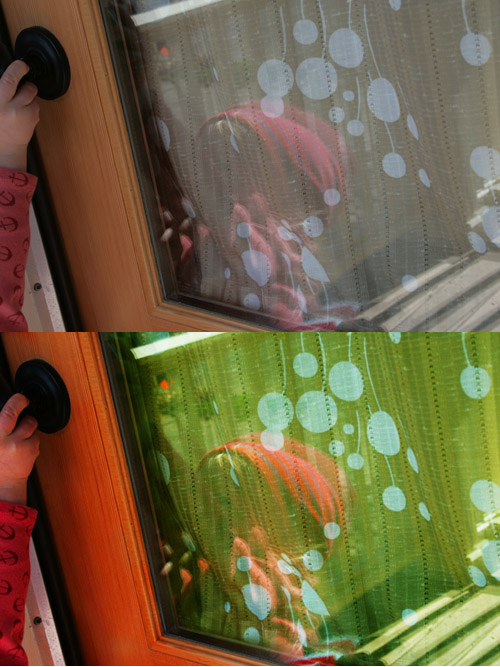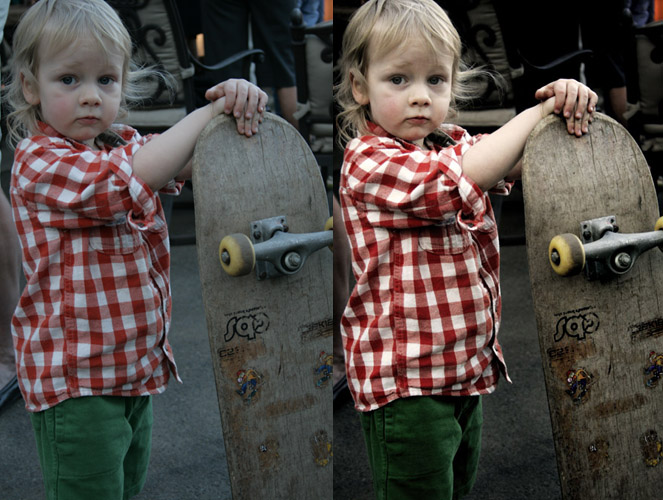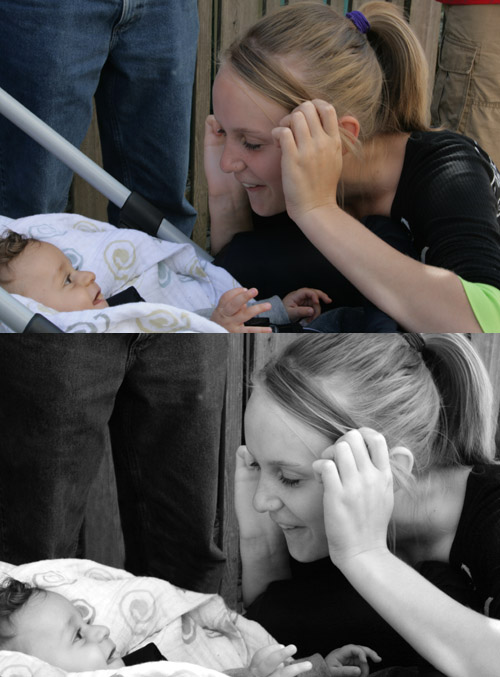
i am perhaps blessed to be surrounded by non-photographers in my life who look at my snapshots and marvel at my 'camera skill'. i try to be honest (most of the time) and tell them that most of what makes my pictures look as good as they do (a subjective and debatable point) is the sometimes rather rugged post-processing i put them through. Photoshop is my friend, and lets me turn out a product that is much more kin to the idea i had in my head when i pressed the shutter in the first place. because the camera and me, we don't always see eye-to-eye. when i see a moment my brain intelligently zooms in on the most spectacular features -- the light just so, these beautiful colors, this subject i adore. the camera, though, can be rather heartless, and it sees everything else that's there, too -- the strange bit of business in the background, the flat shape of the frame. and what's more, that lovely light, the color, it turns out it's not quite so strong in real life, especially once the life has been leeched out of it through its conversion to jpeg, heaven help us if we want to put it on the internet, which magically robs it of even more life, contrast, and color. (if there are any other photographers out there, is this something that you all experience, too? tell me yes, otherwise i'm so completely flummoxed!) so i tweak things, deepen shadows, brighten highlights, pump up colors. like so (and this is a very extreme example, where i went beyond even the truth of my experience of the moment and into a particular effect i wanted to come across strongly, in this case -- green):

or sometimes just to draw your attention to the thing that i intend:

but occasionally i do surgery, when environmental extras just interfere to an excessive level, and must be offed:

there are photographers out there who are just that good, it seems, who point their lens and create magic inside the camera. but truly, every professional photographer that i can think of views post-processing to be as much a part of their artistry and craft as the ability to see a compelling thing and capture it. and the wonder of the digital age is that we no longer have to spend countless hours (and reams of photo paper) trying to do all of that in a darkroom (which i do miss all the same, just as i miss the satisfying ratcheting of the film advance lever after a shot).
and thank you to the shutter sisters, for the constant inspiration as well as a very fun 'assignment'.

3 comments:
I've been told that digital cameras intentional dull everything down and lower contrast, which is why raw photos from a digital camera (SLRs, anyway) come out so blah compared to raw pictures from a film camera... the camera just expects that you have photoshop and will bend the product to your will (and doesn't want to take away any of your possibilities by coming out with a respectable amount of contrast or anything silly like that)
except when you are shooting in the RAW, in which case you have all the image content available to you, something a film camera doesn't really offer. you win some, you lose some. but i'm talking about the image flattening specific to posting on the web, when an image looks great SOOC or post-processing but then loses a LOT of oomph once converted for the internet. i haven't found a way to bypass this (there must be one) other than overcompensating in processing so that the resulting image on the web (post-flattening) approximates my intended result.
Won't enter into the photography debate as I am completely ignorant on the subject - I am just wildly envious of the raspberry-eating boy! I miss raspberries, and I miss you three.
Post a Comment